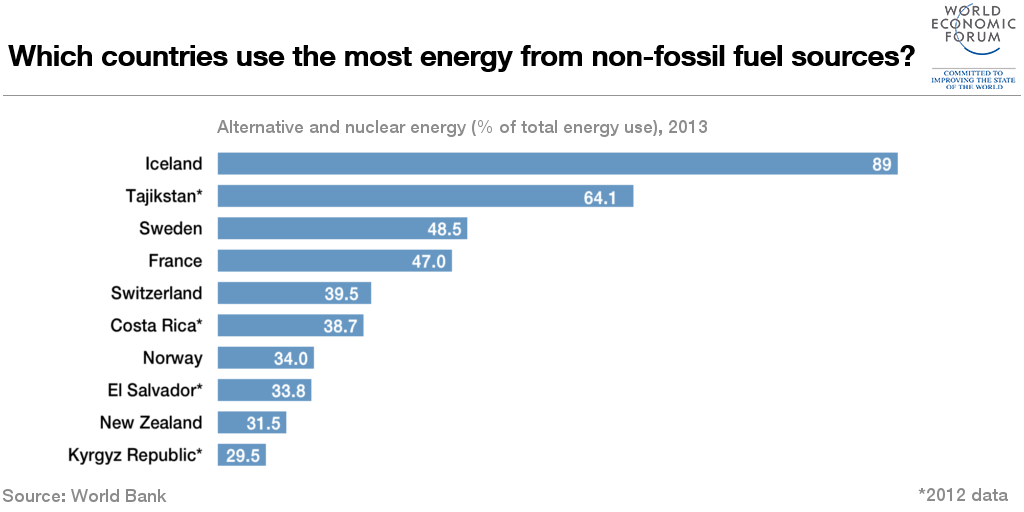Are we ready for a fossil fuel free future?

The world is investing in renewables at a fast pace but how ready are we for fossil fuel free future?
Image: REUTERS/Wojciech Moskwa
Stay up to date:
Decarbonizing Energy
There is no doubt that change is taking place when it comes to investment in fossil fuels. The divestment movement, which campaigns to discourage investment in fossil fuel companies, has gained much attention.
A fossil fuel free future?
According to the United Nations Environment Programme, sustainable development is increasingly being integrated into financial decision-making.
France recently introduced the world’s first mandatory climate disclosure requirements for institutional investors. Norway is divesting its sovereign wealth fund from coal. South Africa has embedded sustainable development into listing requirements on its stock exchange.

Source: The Economist
Private industry is also moving rapidly. The world’s largest asset manager, Blackrock, is launching a fossil fuel free index, and Axa, one of the world’s largest insurance companies, has pledged to divest from coal.
While divestment is certainly taking place, there is disagreement on whether or not it is happened on a scale that will reshape the energy industry.
But should energy companies be preparing for a post fossil fuel free future regardless?
Already some countries can claim to be well on the way to reducing their dependence on fossil fuels. They are, of course, mostly those lucky enough to have an abundance of hydroelectric resources. Tajikistan and Sweden are two examples, while Iceland makes extensive use of its geothermal power.

France stands out as a nation with little hydroelectric power, but which does not rely on fossil fuels for the majority of its power. This is due to its extensive use of nuclear power.
Can countries ever become 100% renewable if they are not blessed with extensive hydroelectric or geothermal resources? There are encouraging signs. Greenhouse gas emissions in over 40 countries have been falling for over a decade and the Danish capital Copenhagen has committed to being carbon free by 2025.
Could we be approaching the point where, within the next few years, we will begin to see entire countries committing to becoming fossil fuel free within a couple of decades?
And we have to look closely at which renewables we are turning to. It is not enough for our energy to be renewable, it must also be sustainable. Not only that, but there are many factors to consider when assessing sustainability. It is a complex issue which goes way beyond simply fossil fuel vs renewables.
It is important to acknowledge that we are going to depend on fossil fuels – and the companies that provide them – for several decades to come. We should also be able to look to today’s energy companies to use their experience and expertise to help develop more environmentally sustainable technologies like carbon capture.
There are also questions to ask when it comes to the divestment movement. Is a high profile campaign pressing for immediate action to withdraw funds from energy companies really the wisest focus for action? When so many people around the world do not have access to reliable energy, are there other policies which could achieve the same end in a different way?
Don't miss any update on this topic
Create a free account and access your personalized content collection with our latest publications and analyses.
License and Republishing
World Economic Forum articles may be republished in accordance with the Creative Commons Attribution-NonCommercial-NoDerivatives 4.0 International Public License, and in accordance with our Terms of Use.
The views expressed in this article are those of the author alone and not the World Economic Forum.
Related topics:
Forum Stories newsletter
Bringing you weekly curated insights and analysis on the global issues that matter.
More on Forum InstitutionalSee all
Madeleine North
January 28, 2025
Klaus Schwab
January 27, 2025
Kaiser Kuo
January 25, 2025
Elizabeth Mills
January 25, 2025
Gayle Markovitz
January 22, 2025





